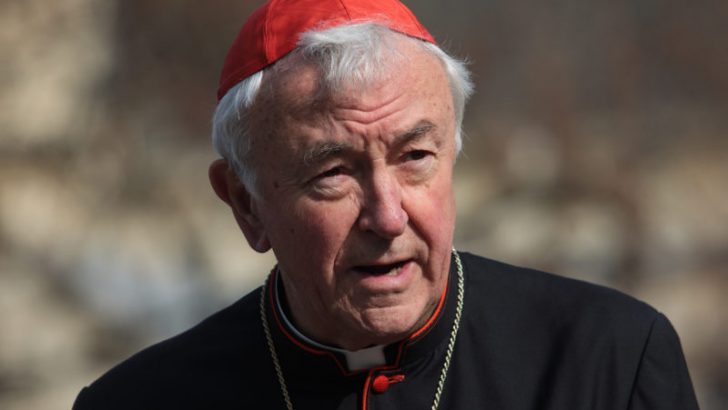Cardinal Vincent Nichols has written to Monsignor Eric de Moulins-Beaufort from the Bishops’ Conference of France to share his deep regret at the “scenes of mockery and derision of Christianity” during the Olympics’ opening ceremony in Paris.
Archbishop de Moulins-Beaufort had already issued a statement expressing the French bishops’ ‘regret’ at the controversial content during the opening ceremony on July 19, to which Cardinal Nichols gave his support.
The section in question closely resembled the biblical scene of Jesus Christ and his apostles at the last supper as depicted by Leonardo da Vinci. It included drag queens, a transgender model and a naked singer who played the role of Dionysus, the Greek god of wine.
The scene caused a widespread backlash from Christians, with Bishop of Paisley John Keenan sharing his ‘shock’ at the ceremony. The Bishops’ Conference of France said, “This ceremony unfortunately included scenes of mockery and derision of Christianity, which we deeply regret.
“We are thinking of all the Christians on every continent who have been hurt by the outrageousness and provocation of certain scenes. We want them to understand that the Olympic celebration goes far beyond the ideological biases of a few artists.”
Now Cardinal Vincent Nichols, the President of the Catholics Bishops’ conference of England and Wales, shared his support for the bishops’ position. He stated in his letter that the aim of the Olympics was to bring people together in a common ideal, but the ceremony’s depiction of da Vinci’s Last Supper had had the opposite effect.
Archbishop de Moulins-Beaufort responded by thanking the cardinal for the support of the Bishops’ Conference of England and Wales, and told him that his letter had been forwarded to the Olympic Organising Committee.
The Vatican has also criticised the opening ceremony. In a communiqué, the Holy See said that ‘there should be no allusions ridiculing the religious convictions of many people’.


 Cardinal Vincent Nichols
Cardinal Vincent Nichols 